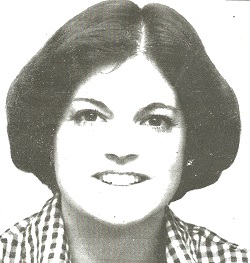Should Pharmacists Tell Your Doctor How to Treat Pain?
/By Pat Anson
Would you like a pharmacist to consult with your doctor about how to treat your chronic pain before you even see the doctor?
Given all the problems that pain patients already have getting pharmacies to fill their opioid prescriptions, that sounds counter-intuitive. But embedding a pharmacist in doctors’ offices and giving them advice is the premise behind a new article published in the Drug Topics Journal, written by Sarah Schang and Madison Irwin, who both have medical degrees in pharmacy (PharmD).
They think giving pharmacists a prominent and early voice in your pain care will lead to better treatment and reduce the risk of controlled substances being misused. In their eyes, pharmacists “play key roles in educating other health care professionals and patients about safe and effective chronic pain management.”
Under federal law, pharmacists have a “corresponding responsibility” when filling prescriptions for opioids and other controlled substances – a legal right to refuse to fill prescriptions they consider unusual or improper. Usually that “responsibility” begins at the pharmacy level, but Drs. Schang and Irwin think it should start before prescriptions are even written for chronic pain conditions.
“Despite the high prevalence of chronic pain and its far-reaching consequences, it often has suboptimal management, typically involving a combination of pharmacotherapy that can quickly become complex and require expertise. Pharmacists are uniquely well positioned to provide this expertise and optimize medication management for chronic pain,” they wrote.
“There is an immense need for safe and effective medication management in chronic pain, and pharmacists have a unique role to play in meeting this need.”
Schang and Irwin cite several old pilot studies to support their claims. One study, published in 2018, involved 45 pain patients on high-dose opioids being treated at a large family medicine practice. A few days before their appointments, two pharmacists embedded in the practice reviewed patient charts and pain management plans, and recommended changes to their treating physicians.
Almost always, the recommendations were to taper the patients off opioids, switch to non-opioid analgesics, refer the patients to a pain specialist, and offer them a naloxone prescription to reverse overdoses. Those recommendations were often implemented.
How did that work out for the patients? According to Schang and Irwin, there was a 14% average decrease in their daily dose of opioids in morphine milligram equivalents (MME), a tapering that was achieved “without impacting pain scores.”
Is that what happened? Not really. A close look at the study itself shows that the average pain score went up after doses were lowered, from 5.3 before the pharmacists’ intervention to 5.5 afterward, based on a zero to 10 pain scale.
It’s also worth noting that these “high-risk” patients were on relatively high opioid doses before the intervention (135 MMEs daily). Even with the 14% reduction in dose, they were still getting an average of 116 MMEs daily – a dose that’s unattainable for most patients today due to fears about “overprescribing” opioids. Most patients in 2025 get less than 90 MME, in many cases substantially less.
Another pilot study cited by Schang and Irwin dates back to 2016. It involved a community pharmacy in an academic medical center in southern California. Pharmacists there reviewed the treatment plans of 23 patients on high dose opioids and recommended changes in their treatment, such as tapering, regular drug tests, and naloxone.
How the changes impacted the patients’ pain levels was apparently not evaluated, but particular attention was paid to their mental health. The most common problems identified by the pharmacists were “untreated” depression, anxiety, insomnia, and substance misuse.
“Notably, substance misuse was identified in nearly a third of patients, which allowed for subsequent referral to substance use disorder treatment when appropriate. Similar interventions in the community pharmacy setting also demonstrated significant value, with pharmacists identifying unaddressed issues with mood in nearly two-thirds of patients and increasing the uptake of naloxone,” Schang and Irwin wrote.
Being referred to addiction treatment or a psychiatrist probably isn’t the goal of most pain patients, who simply want their pain managed. That would go a long way toward resolving their “unaddressed” mental health issues.
Many pain patients today are already frustrated with pharmacists. They can’t get their opioid prescriptions filled due to opioid rationing, and are tired of the stigma and hostility they often face at pharmacies. The pharmacy industry itself is also going through a major contraction, with big chain pharmacies closing thousands of stores, leaving behind a dwindling supply of overworked pharmacists who are just as frustrated as the patients.
This is probably not a good time to embed pharmacists in clinical practices, and make a bad situation even worse.









